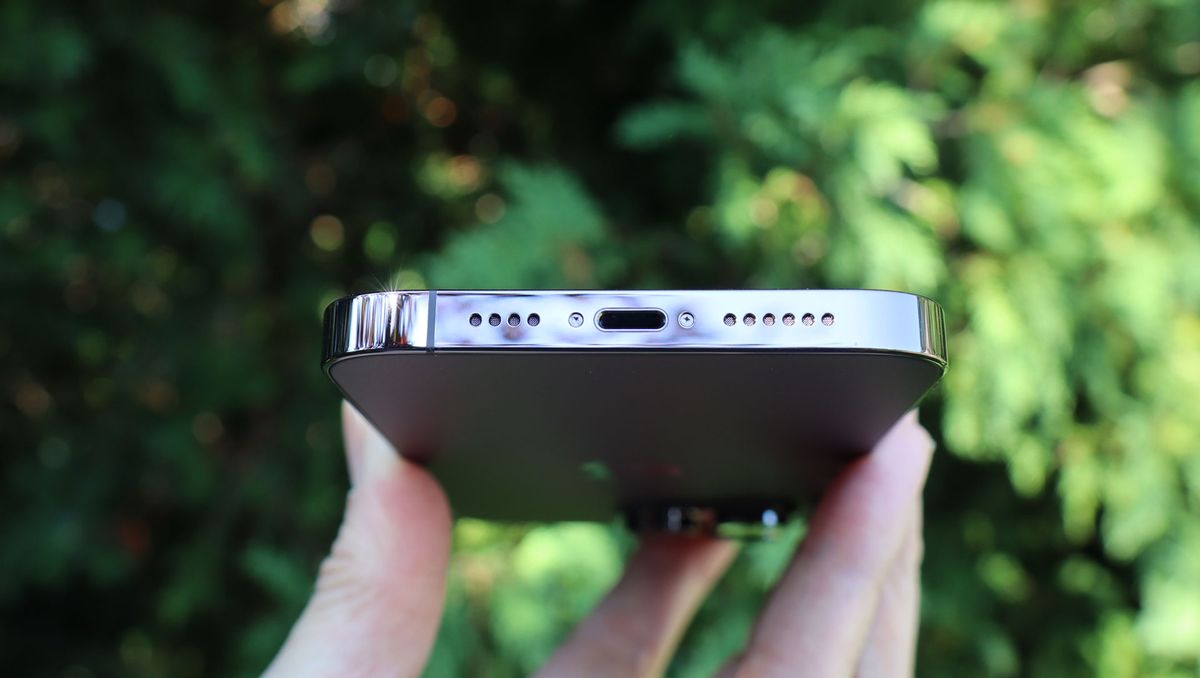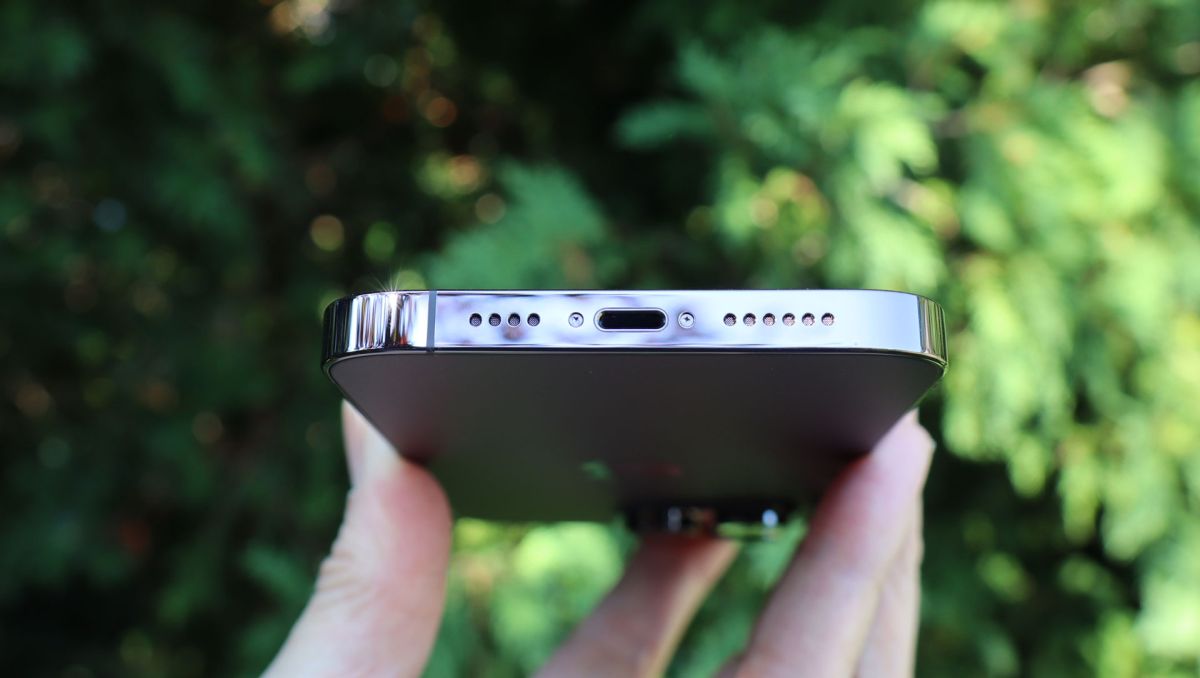
The iPhone 15 is being widely tipped to swap the Lightning port of past handsets for USB-C – not least because of regulatory pressure in Europe – but a new rumor suggests that this port could end up being limited in terms of what it’s capable of.
As per a source on Chinese social media site Weibo (opens in new tab) (via MacRumors (opens in new tab)), the USB-C port on the iPhone 15 and iPhone 15 Pro devices will be fitted with an integrated circuit holding an authenticator chip, so peripherals can be checked for their compatibility.
In other words, we could get a situation where only Apple-approved chargers and other accessories actually work with the iPhone 15. That’s how the current iPhone Lightning port connection works too – it has an authenticator chip in it.
No iPad precedent
It’s worth noting that the USB-C port that Apple has been fitting to its iPads in recent years doesn’t come with any kind of restrictions, so you’re free to plug in whatever you like – assuming that it’s been built to work with these tablets.
Of course this is all speculation off the back of an unconfirmed rumor, so don’t take this as anywhere near certain just yet. It’s something to look out for in September though, when the iPhone 15 with USB-C is expected to make its debut.
There has also been talk that the USB-C port on the iPhone 15 Pro models is going to offer faster data transfer speeds than the same port on the cheaper iPhone 15 devices – unless Apple decides to delay the transition until 2024 and the iPhone 16.
Analysis: taking more control
Considering there has been an authenticator chip inside the iPhone for years, checking up on the peripherals you’re plugging into it, it would perhaps be no surprise if Apple decided to follow the same strategy as it switches its phones over to USB-C.
On the one hand, users may be disappointed at being pushed towards a specific list of accessories: it’s possible that these accessories will be more expensive, while useful and innovative peripherals get left out because they don’t have approval.
On the other hand, Apple’s perspective will be that this enables the iPhone to protect itself from being plugged into anything that’s lower quality or even dangerous. When it comes to charging cables, for example, it’s important to know they’ll work safely.
At this stage we just don’t know – it may be that any peripheral will work, but non-certified ones won’t have access to all the features of the USB-C port. Alternatively, the iPhone could get an iPad-style USB-C port without an authenticator chip attached.
Services Marketplace – Listings, Bookings & Reviews
